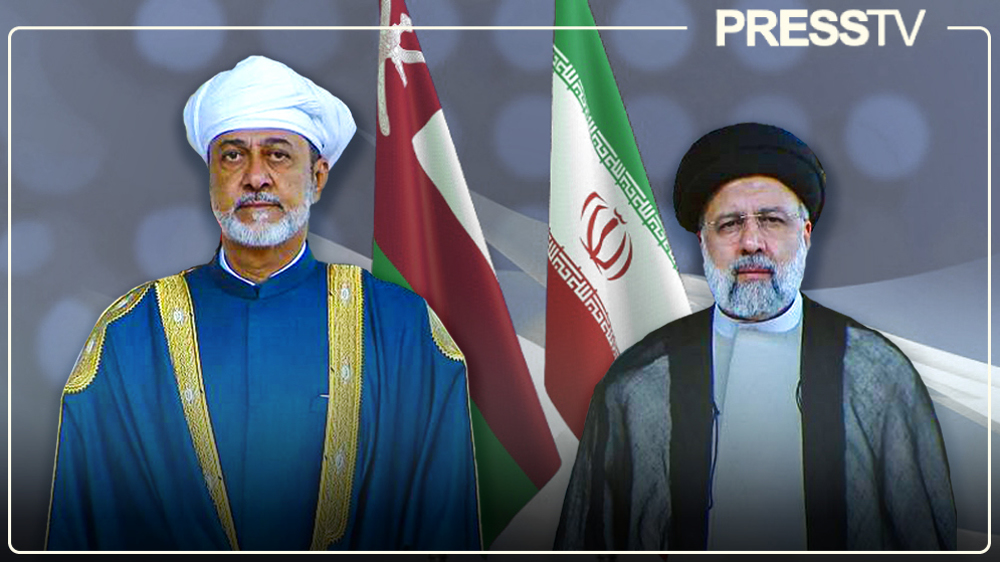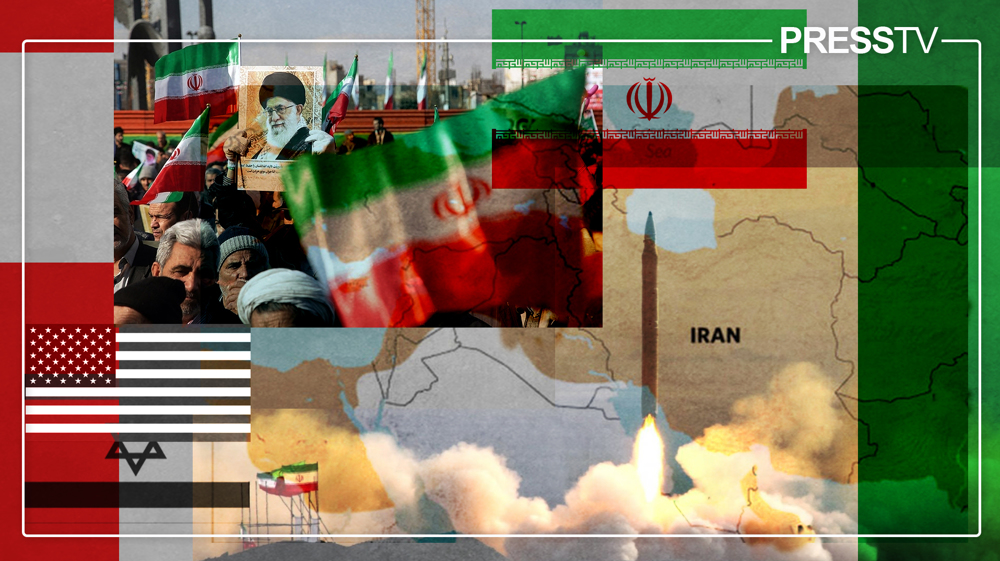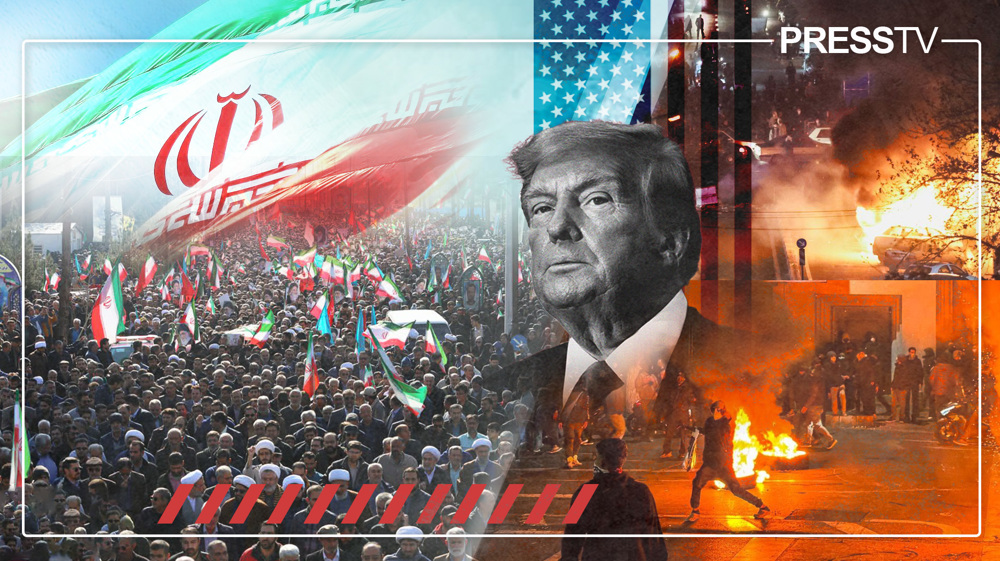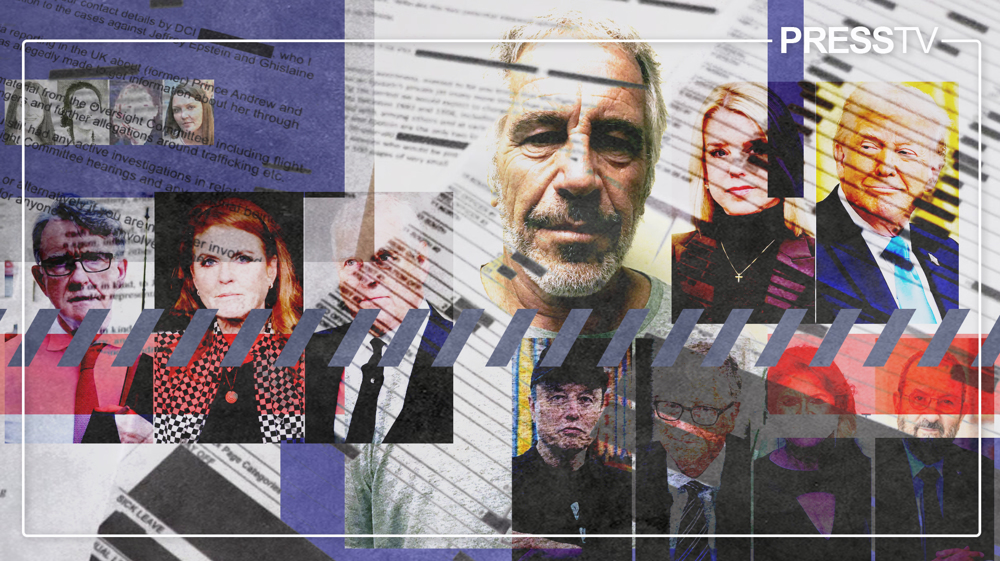Sultan Haitham in Tehran as Iran, Oman eye closer ties, regional integration
By Ivan Kesic
Haitham bin Tariq Al Said, the Sultan of Oman, touched down in Tehran on Sunday afternoon on his first official visit to the Islamic Republic of Iran since coming to power in early 2020.
His two-day visit comes at the invitation of Iranian President Ebrahim Raeisi, who paid a visit to the Persian Gulf country in May last year when the two sides signed a number of bilateral trade deals.
Sultan Haitham's entourage to Tehran includes Omani foreign minister Sayyid Badr bin Hamad Al Busaidi, along with high-ranking defense, investment and royal officials, according to reports.
The high-stakes visit will touch on means of promoting economic and diplomatic cooperation between Iran and Oman, the two all-weather allies in the Persian Gulf region.
Bilateral trade relations and investments will be the key area of focus during Sultan Haitham’s visit to Tehran, which comes amid significant regional developments in recent months.
Businessmen and entrepreneurs of both countries have welcomed the visit and are hopeful that the bilateral trade and investments by the government and private sectors will get a major boost.
The two countries who have enjoyed 50 years of close diplomatic relations are also expected to discuss the normalization wave sweeping the region and the ouster of the foreign forces from the Persian Gulf region with Oman playing the role of an effective mediator.
The potential Iran-Egypt rapprochement as well as the revival of the 2015 nuclear deal and the lifting of draconian US sanctions is likely to figure prominently in discussions between the two sides.
Economic potential
Jamal Razaghi, chairman of the Iranian side in the Omani-Iran Joint Business Council (OIJBC), in his remarks on the eve of the visit, said the Sultan of Oman’s meetings with the Iranian leadership in Tehran would achieve the goals of the people of the two countries.
"I hope the meetings between the two leaders would open more opportunities in the fields of trade, scientific and medical cooperation between the two countries," Razaghi told the Omani media.
"Iran aspires for increasing the size of the exchange of trade with Oman to $5 billion. This is possible as there are great opportunities for trade between the two countries. Iran does not view Oman as an economic market but as a vital strategic partner.”
He further said that boosting joint investments and setting well-established mechanisms for accelerating the executive procedures for investment would achieve sustainability of the trade relations.
“The joint investments and cooperation, currently witnessed by businessmen, is the result of the strong relationship set by the governments of both the countries during the past years," the official said.
Mohsen Darabi, former president of the Iran Chamber of Commerce, Industries, Mines and Agriculture (ICCIMA), said that the economic cooperation is one of the results of the strong relations between the Sultanate of Oman and the Islamic Republic of Iran.
"We hold great aspirations, mainly with the presence of economic agreements and vital border posts between the two countries. ICCIMA supports the Iranian and Omani companies in both countries and works to facilitate investments," he was quoted as saying.
Ali Najafi Khoshroudi, ambassador of Iran to Oman, was quoted as saying by the Omani media that Sultan Haitham's visit to Tehran and his meeting with the Leader of the Islamic Revolution “will foster an unprecedented level of partnership and cooperation between the two nations."
Khoshroudi also praised the concerted efforts made to enhance air and sea connectivity between Oman and Iran, saying these "improvements are expected to have a significant impact on boosting trade and economic exchange between Tehran and Muscat.”
The ambassador also acknowledged the positive effects of exempting citizens of both nations from travel visa requirements.
Regional integration
Apart from the economic point of view, the visit of the Sultan of Oman is also of great importance for the development of multilateral diplomatic relations and the strengthening of regional integration.
Sultan Haitham's visit to Iran comes just one week after his trip to Egypt. The Sultan of Oman and Egyptian President Abdel-Fattah El Sissi met in Cairo to talk about "overall regional and international developments," according to Oman’s official news agency.
Egyptian officials were cited as saying that Cairo and Tehran are expected to exchange ambassadors soon as part of a process mediated by Oman to normalize relations between the two regional powers.
In recent months, Oman has significantly upped its activities as a mediator between regional countries, from the restoration of relations to the release of prisoners.
The release of former Iranian diplomat Assadollah Assadi, who was detained in Belgium after a sham trial, was brokered by Oman. Assadi reached home on Saturday after five years.
In March, Saudi Arabia and Iran agreed to resume relations in a China-brokered deal. While the deal was finally reached in China, Oman and Iraq mediated the tension-easing negotiations for two years.
Oman is also engaged in efforts aimed at the revival of the Joint Comprehensive Plan of Action (JCPOA), also known as the Iran nuclear deal, as it played a key role in brokering it eight years ago.
Oman has also been the chief architect of the normalization of relations between Syria and the Arab League, rebuffing pressure from the United States and the Israeli regime.
Muscat is also mediating talks between Saudi Arabia and the Yemeni Ansarullah resistance movement.
Although it is a small country in terms of population and resources, Oman has earned a reputation for being an effective mediator in regional disputes and conflicts.
Ivan Kesic is an independent journalist and researcher.
(The views expressed in this article do not necessarily reflect those of Press TV)
Hezbollah leader: Israel‑US aggression is Lebanon’s main challenge
Muslim nations condemn Israel’s new West Bank settlement laws
Iraq executes ex-Saddam official over 1980 killing of Shia cleric Baqir al-Sadr
Iran could dilute 60% enriched uranium if ‘all sanctions lifted’: Nuclear chief
FBI chief vows to ‘hunt down’ those who kill American citizens – except Israel
VIDEO | Exclusive: Armed Forces spokesman says Iran will never give in to US pressure amid talks
Iran‑US talks ‘good opportunity’ to resolve nuclear issue: President Pezeshkian
Iran seeks result-oriented talks, progress depends on US seriousness: Araghchi










 This makes it easy to access the Press TV website
This makes it easy to access the Press TV website